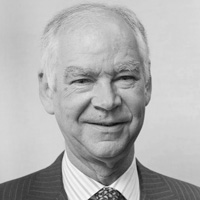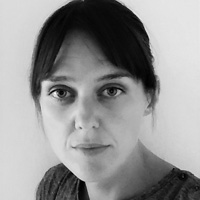Foundations of Ireland 2050
Ireland, like many other countries in the world, is facing an energy transition.
With concerns mounting over energy security, the environment, sustainability, and climate change, there is a concerted effort across governments to engage the energy industry and energy users in the shift to a more sustainable system.
Public policy is the driving force behind a shift to a sustainable energy system, which requires both political and societal support. Agreement between parties is not easy however, and access to non-partial information, cultivating an inclusive understanding about our options, and ensuring citizen engagement is an important part of this process.
We believe in empowering people to participate in the discussion about Ireland’s energy system; by knowing how it works, what it takes to have a secure and stable supply of energy to people’s homes and businesses, whether it is fair and competitive, how it has developed over time, and how it could continue to develop with greater efficiency and synergy with our community and our environment.
Our website is designed to be accessible, interesting, relevant and above all empowering. Ireland 2050 is about the facts and options for the future and not about promoting any particular position or preference.
Ultimately, there is a trade-off between cost (to businesses and the consumer), environmental impact (to ensure the sustainability of our way of life for future generations), and maximising social benefit through collaboration, utilising the latest technologies, and finding solutions which work for us all.
In the first version of Ireland’s 2050 Calculator, the important question of cost has not yet been included so at present the Calculator cannot be used to explore the least costly solutions for Ireland. For the time being, insights from using the model should be considered in light of this crucial caveat.
The idea for the project was conceived by the former Chairman of the Energy Institute in Ireland, David Taylor, who was also the first CEO of the Sustainable Energy Authority of Ireland, and the concept was developed into the three key pillars with the help of Rory Kelleher. With the support of the Energy Institute, the energy industry and Government, the Ireland 2050 initiative is now a reality that we hope will empower Irish citizens to engage in the debate about Ireland’s energy future.
It has taken almost two years of collaboration, not only with partners in Ireland who gave generously of their time, expertise and financial support, but also internationally engaging partners from the United Kingdom, Belgium, South Africa and Chile.
As part of an international community of countries that are developing their own 2050 Calculators we have participated in conferences in Taiwan and Mexico on citizen empowerment and assisted with the development of the Calculator in Chile.
Navigating Ireland 2050, and our ambition
In the “Present” section we answer the questions that are most pressing in the media and public debate. Our aim is to help people form their own opinion by understanding the considerations at play and the options we have. The “Present” section has summary explanations of these topical issues framed as responses to questions. We also provide a long answer to each question with links to authoritative sources.
If you have any suggestions for the provision of further information we would love to hear from you.
Our account of the “Past” is a reminder that our energy system evolved in response to resource availablity, the pressures of growing demand, technology developments and geopolitical events. An appreciation of these drivers can help us in facing today’s issues of energy security, affordability and combatting climate change.
In the “Energy sources” section we elaborate on the past with some interpretative comment and conjecture about where developments are heading.
The “Calculator” allows the visitor to explore the full system response to their preferred policies to reduce CO2 emissions. A simpler version in the form of “My2050” will enable people to arrive at their own conclusions about the requirements for and the trade-offs between policy options.
To be sure, any selection of facts is never the whole story – the claim that we make for our selection is that is independent and representative. We are always open to comment and will take careful account of any received. Ultimately, the value of the initiative rests on the trust and respect of our users.
Who we are
Ireland 2050 is part of a wider Energy Institute programme to promote understanding of our energy system and the policy choices we face in making it more sustainable.
The Energy Institute is a professional membership body and registered charity that develops and shares knowledge, skills and good practice towards a safe, secure and sustainable energy system. We are independent and impartial in our analysis and committed to the provision of authorative and sound information from credible and respected sources.
The Ireland 2050 project has benefitted from the assistance of partners across the energy spectrum. You can find links to our sponsors and other relevant organisations below.
The core team included
 David Taylor – Project Manager
David Taylor – Project Manager
 Sarah Stanley – 2050 Calculator and My 2050 Model Developer
Sarah Stanley – 2050 Calculator and My 2050 Model Developer
Email Sarah
Rory Kelleher – Strategy and Communications Advisor
 Eva Greene – Content developer
Eva Greene – Content developer
Rowena Walsh – Editor
The Steering Committee:
J Owen Lewis, Chair
Brendan Sheehan, Energy Institute, Ireland
Jocelyne Bia, Energy Institute, London
Sam Knox, Energy Institute, Northern Ireland
David Taylor, Energy Institute, Ireland
Acknowledgements
Our website was developed by New Graphic http://www.newgraphic.ie
The interface for My 2050 was developed by Real World Visuals www.realworldvisuals.com
We could not have realised this project without the support of our sponsors and the willing participation of over 40 experts who gave freely of their time to review the facts and provide advice on the assumptions we used for exploring the future.
Links to partners and other useful sources of information [unsorted]
Energy Institute – Irish Branch: https://www.energyinst.org/branches/EI-republic-of-Ireland
Electricity Supply Board: https://www.esb.ie/
Bord Gais: https://www.bordgaisenergy.ie/
Ervia: http://www.ervia.ie/
Shell in Ireland: http://www.shell.ie/
Bord na Mona: http://www.bordnamona.ie/
Environmental Protection Agency: http://www.epa.ie/
Department of Communications, Climate Action, and Environment: http://www.dccae.gov.ie/en-ie/Pages/home.aspx
Eirgrid: http://www.eirgridgroup.com/
Single Electricity Market Operator: http://www.sem-o.com/Pages/default.aspx
Commission for Energy Regulation: http://www.cer.ie/
Economic and Social Research Institute – Energy and Environment Division: https://www.esri.ie/research/energy-and-environment/
UCC Energy Policy and Modelling: https://www.ucc.ie/en/energypolicy/
UCD Energy Institute: http://energyinstitute.ucd.ie/wp/
Sustainable Energy Authority of Ireland: http://www.seai.ie/
Engineers Ireland: http://www.engineersireland.ie/home.aspx
IBEC: https://www.ibec.ie/
Electricity Association of Ireland: http://eaireland.com/
Climate Calculator: http://www.climatecalculator.net/
Global Calculator: http://uncached-site.globalcalculator.org/